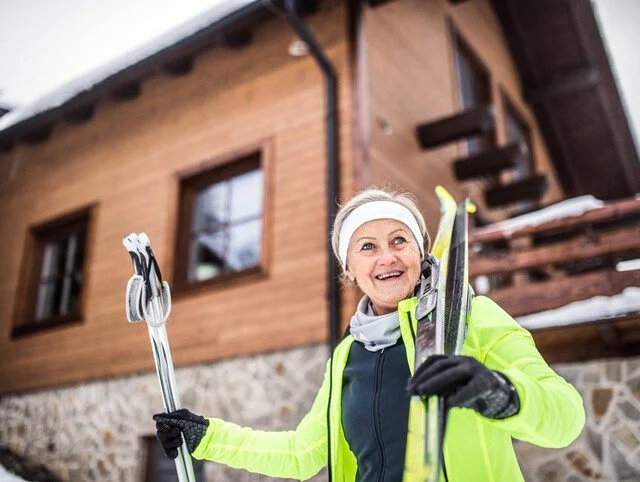Walking is an ideal way to stay healthy, especially for seniors. The benefits of walking are numerous and can improve physical, mental and emotional well-being. Many senior adults already incorporate walking into their daily routines, but if you haven’t, here are some reasons why you should consider it. Be sure to speak with a medical professional, however, before making any changes in your exercise routine.Â
1. Walking Is Good for Your Physical Health
Walking benefits your body in many different ways. It can improve your cardiovascular health by lowering blood pressure and cholesterol, strengthen your bones and muscles and even reduce your risk of falls, which is key to maintaining your independence as you age. Even better, it takes no special equipment, and the health benefits of walking start to take effect in as little as 10 minutes per day.
2. Walking Can Help You Sleep Better
Many seniors struggle with sleep issues like insomnia or have trouble staying asleep at night. Walking can improve sleep quality by promoting relaxation and reducing stress. Additionally, regular exercise has the added benefit of tiring the body out, making it easier to fall asleep (and stay asleep) each night.
Exposure to sunlight can also help regulate the body’s natural circadian rhythms, helping you create a healthy sleep routine.
3. Walking Can Boost Your Mood
Exercise is a great mood-booster thanks to natural “feel-good hormones” called endorphins. While many forms of exercise may be difficult for older adults, the low-impact nature of walking makes it accessible for a wide range of physical fitness levels.
Seniors should aim for at least 150 minutes of activity per week. This translates to approximately 30 minutes per day at least five days per week.
4. Walking Slows Cognitive Decline
Walking is great for the brain in more ways than one. In addition to being a mood booster, exercise can slow cognitive decline or even enhance cognitive performance. This is due to the fact that exercise promotes proper blood flow to the brain to keep it healthy and functioning properly. Some studies have even linked walking to a lower risk of dementia and related conditions.
5. Walking Reduces Loneliness
As we age, it’s not uncommon to experience loneliness and isolation. However, walking with companions can help combat this. Friendships later in life play an important role in our well-being, and walking with others can help provide a sense of community and social connection. In turn, this helps seniors feel more engaged with the world around them.
Get Active At Friendship Village of Bloomington
Did you know community living can lead to a more active lifestyle? Come see for yourself at Friendship Village of Bloomington!
At Friendship Village, we can help you make health and wellness priorities in your life to ensure you get the most of your retirement years. After all, you’ve worked hard to make it this far. Now it’s time to live life to the fullest.
To learn more about life at Friendship Village, contact us today. A member of our team would love to tell you more about our community and retirement life in Minnesota.


